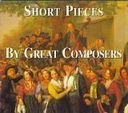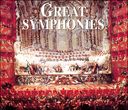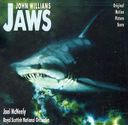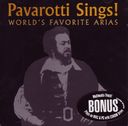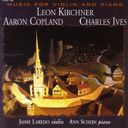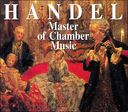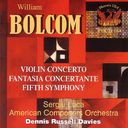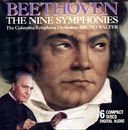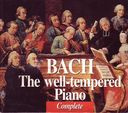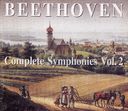David Craighead, David Mulbury & Fairfield Orchestra Works For Organ & Orchestra
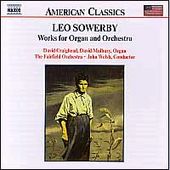
| Price: | $18 |
| List Price: |
|
| You Save: | $1.99 (10% Off) |
Available:
Usually ships in 3-5 business days
|
Brand New
|
CD Details
- Released: January 19, 1999
- Originally Released: 1999
- Label: Naxos American
Product Description:
Festival Musick and Classic Concerto were both written for E. Power Biggs, who had given the premiere of Sowerby's Organ Concerto in C major with the Boston Symphony in 1938. Festival Musick, written in a single week during the summer of 1953, was first heard on Riggs' weekly CBS radio broadcast from Harvard's Germanic Museum on 3 January 1954. The Classic Concerto had it's premiere on the same program on 9 April 1944, having been written in the first three months of the year. In both instances the instrumentalists were from the Boston Symphony Orchestra, Richard Burgin conducted. Festival Musick is in three movements: "Fanfare" begins with a pungently dissonant but effective brass flourish. The organ enters with a toccata-like figuration in the right hand over a strongly angular theme in the left hand and pedals. After a reception of both motifs in another key, the movement elaborates on this material, progressing in excitement and intensity to a bold conclusion. After the unrestrained exuberance (and volume) of the first movement, the quiet "Chorale" is an effective foil. It is in variation form and relies largely upon the organ and one of two of the brasses used intermittently for solo lines of great beauty. The idea for the final movement came from Biggs. The A.G.O. (American Guild of Organists) awards two degrees on the basis of examinations: Associate and Fellow (A.A.G.O.; F.A.G.O.). The three acronyms provide the major thematic content of a movement marked "With verve". While the A, G, and F are, of course, part of the musical scale, Sowerby's dual solution to the "O' is ingenious. To reveal it here, however, would spoil the composer's little joke, so it will be left to the listener. If Festival Musick represents the composer at his brashest, Classic Concerto emphasizes his lifelong comfort in expressing his distinctive harmonic muse and free counterpoint with traditional formal structures. It's texture is also more transparent than earlier Sowerby scores. The three connected movements in "fast-slow-fast" relationship, the interplay between organ and strings, and the avoidance of lengthy introductions prior to the main thematic content of each movement are all reminiscent of the 17th and early 18th century concerto grosso. Finally, for a composer who was sometimes accused by others and himself of lacking brevity (like Cesar Franck, whom Sowerby greatly admired), the Classic Concerto is tightly compacted. Even the organ cadenza, here found in the third movement is telling in it's succinctness. Medieval Poem was sketched 9-19 January 1926, with the score completed the following month. The first performance was a concert of works for organ and orchestra, sponsored by the Illinois Council of the National Association of Organists, and given in Chicago's Kimball Hall on 20 April 1926. Rollo Maitland was the organist, with an orchestra comprised of first-chair players from the Chicago Symphony Orchestra, conducted by it's associate conductor, Eric DeLamarter. The inspiration for the work was a text from the ancient Liturgy of St. James, "Let All Mortal Flesh Keep Silence". In the 1926 program notes, Sowerby wrote that he "Has endeavored to interpret the atmosphere of mystery which pervade the poem by translating into tone something of the vision of the heavenly pageant which St. James or any devout soul might have imagined". The day before the composer set to work on Medieval Poem, he had received a warm letter of appreciation from the Rector of St. James Episcopal Church in Chicago, where he had filled in as organist-choirmaster during a six-week emergency, so the choice of text can hardly have been coincidence. The same rector would hire Sowerby on the composer's thirty-second birthday, 1 May 1927, as permanent organist-choirmaster at St. James' Church, beginning a thirty-five-year career there. The musical form of Medieval Poem is a rhapsodically free set of variations on an original chorale theme. That theme, however, first appears in unadorned form in the organ near the end of the piece, later echoed by a wordless v




